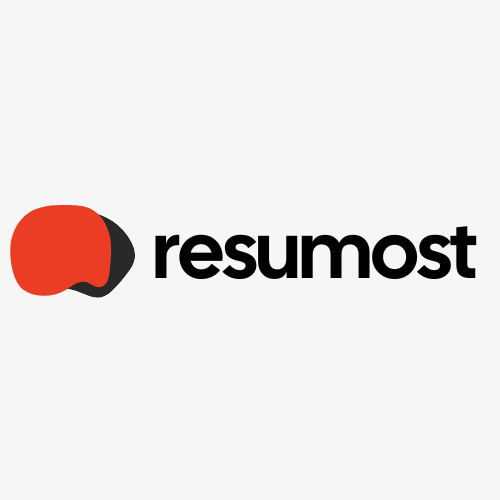How to Write a Cover Letter That Gets You Hired
Don't let a lack of formal experience hold you back. Learn how to craft a compelling cover letter that showcases your potential, highlights your transferable skills, and makes a memorable first impression on any hiring manager.
Your Quick-Start Checklist
Before we dive deep, here are the essential steps to writing a standout cover letter with no experience:
- Do Your Homework: Research the company and find the hiring manager's name. A personal touch goes a long way.
- Focus on Enthusiasm: Lead with genuine excitement for the role and the company’s mission.
- Highlight Transferable Skills: Identify skills from school, volunteering, or personal projects that apply to the job.
- Connect Your Values: Show how your personal values align with the company's culture.
- End with a Confident Call to Action: Clearly state your interest in an interview.
Step 1: Nail the Introduction
Forget "To Whom It May Concern." Your first goal is to make a personal connection. A quick LinkedIn or company website search can often reveal the name of the department head or hiring manager. Using their name (Dear Ms. Tran, or Dear Alex Chen,) instantly shows you've put in the extra effort.
Your opening sentence is your hook. It needs to grab their attention and make them want to read more. Ditch the generic "I am writing to apply for..." and try one of these more engaging approaches:
- The Passion Hook: "As a long-time admirer of [Company Name]'s commitment to sustainability, I was thrilled to see the opening for a Junior Marketing Assistant on your careers page."
- The Skill Hook: "My experience leading a successful fundraising campaign for my university's environmental club has equipped me with the project management and communication skills needed to excel as your new Community Outreach Coordinator."
- The Connection Hook: "After speaking with your representative, Jane Doe, at the recent Tech Innovators fair, I was inspired by [Company Name]'s vision and knew I had to apply for the Software Development internship."
Step 2: Build the Body with Your Potential
This is where you make your case. Since you can't lean on a decade of experience, you'll lean on your potential, skills, and passion. Structure the body of your letter into one or two short paragraphs.
Uncover Your Transferable Skills
You have more skills than you think. These are abilities you've gained from other areas of your life that are valuable in a professional setting. Think about:
- Teamwork & Communication: Group projects, sports teams, debate clubs.
- Time Management & Organization: Juggling classes and a part-time job, planning a student event, meeting deadlines for major assignments.
- Problem-Solving: Tutoring a classmate, troubleshooting a technical issue on your own, finding a creative solution for a club budget shortfall.
- Adaptability & Eagerness to Learn: Taking online courses, teaching yourself a new skill (like video editing or basic coding), or stepping into a leadership role unexpectedly.
Show, Don't Just Tell
Instead of just listing your skills, provide a brief story that demonstrates them.
- Instead of: "I have strong leadership skills."
- Try: "As captain of my university's debate team, I was responsible for organizing practice schedules for 15 members and developing strategies that led our team to the regional finals. This experience honed my ability to motivate a team and communicate clearly under pressure."
This simple formula—connecting an experience to a specific, relevant skill—is incredibly powerful.
Step 3: Prove You're the Perfect Fit
Why this company? Hiring managers want to see that you've done your homework and are genuinely interested in them, not just any job.
Spend 15 minutes on their website. Find their mission statement, read their blog, or check out their recent social media posts. Then, weave what you find into your letter.
For example:
"I was particularly drawn to [Company Name]'s 'Innovate for Good' initiative. My volunteer work building websites for local non-profits aligns perfectly with this value, and I am eager to contribute my technical skills to a company that prioritizes community impact."
This single sentence proves you’ve done your research and shows you’re a cultural fit—something employers value immensely.
Step 4: Close with Confidence
Your final paragraph should be clear, confident, and forward-looking.
- Reiterate Your Enthusiasm: Briefly restate your excitement for the opportunity.
- State Your Goal: Explicitly say you'd like to discuss your qualifications in an interview.
- Thank Them: End with a professional closing like "Sincerely" or "Best regards."
Putting it together:
"I am confident that my passion for creative problem-solving and my quick-learning abilities would make me a valuable asset to your team. My resume is attached to provide more detail on my qualifications. Thank you for your time and consideration. I look forward to hearing from you soon."
Once your cover letter is polished, make sure it's paired with an equally impressive resume. A clean, professional cover letter from a AI-powered tool like Resumost can ensure your entire application looks cohesive and stands out.
And that's it! You've successfully navigated the challenge of writing a compelling cover letter without formal experience. Remember, every expert was once a beginner. Your enthusiasm, potential, and willingness to learn are your greatest assets. Now go show them what you've got.
© 2026 Resumost.
We love that you're reading our work! Please note that this content is our own. If you'd like to share or re-post it, please reach out to us for permission first. Unauthorized scraping of this site is not permitted.

The Resumost Team
Resumost instantly creates a compelling, professional letter based on your newly tailored resume and the specific job you're targeting.
